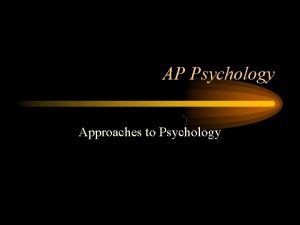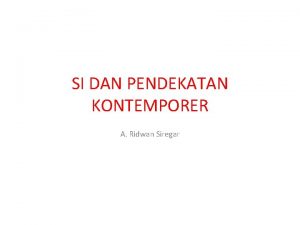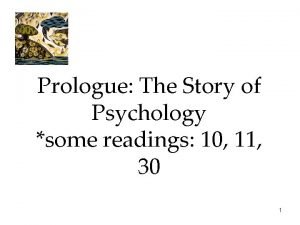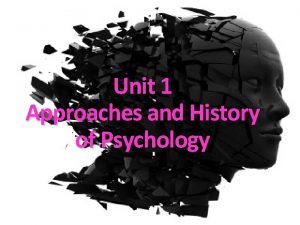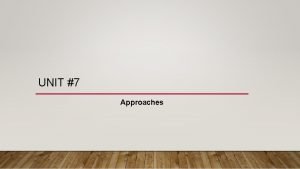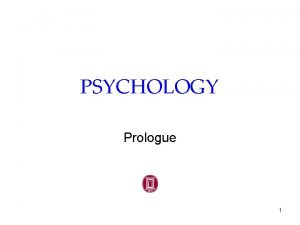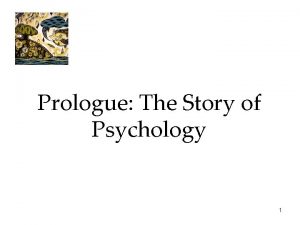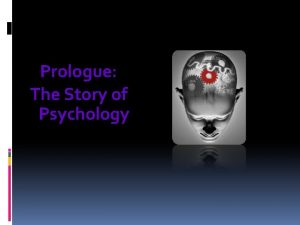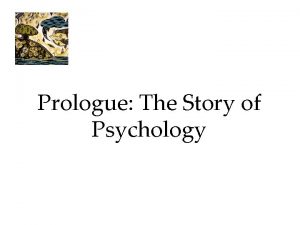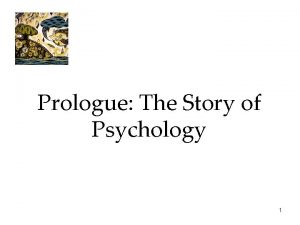Prologue C Contemporary Approaches to Psychology A P






- Slides: 6

Prologue (C): Contemporary Approaches to Psychology A. P. Psychology

Do-Now: (Discussion) Describe the 7 Contemporary Approaches to Psychology n Which approach(es) do you feel is/are most favorable? Why? n

Contemporary Approaches to Psychology: “The Outrageous Celebrity” n Directions: n Choose a celebrity who is known for their outrageous behavior, style, and/or persona. Provide a list of his/her behavior that you consider abnormal, or out of the ordinary. Next, apply what you have learned about the 7 Contemporary Approaches to Psychology, by describing how each school of thought would explain the behavior. Feel free to be creative (and even outrageous), as long as your reasoning falls in line with each perspective. Be prepared to share your responses verbally with the class.

Contemporary Approaches to Psychology: “The Outrageous Celebrity”

Contemporary Approaches to Psychology: “The Outrageous Celebrity” n Part I. : Background Information n n Which celebrity did you choose and why? Provide a list of his/her behavior that you consider abnormal. Part II. : 7 Contemporary Approaches to Psychology n n n n Biological Psychology Evolutionary Psychology Psychodynamic Psychology Behavioral Psychology Cognitive Psychology Humanistic Psychology Social-Cultural Psychology

Homework n Unit 1 FRQ n Unit 1 Key People n Unit 1 Quiz: “Psychology’s History & Approaches” n Unit 1 Test: “Psychology’s History & Approaches” n Chapter 1 Outline: “Research Methods: Thinking Critically with Psychological Science”
